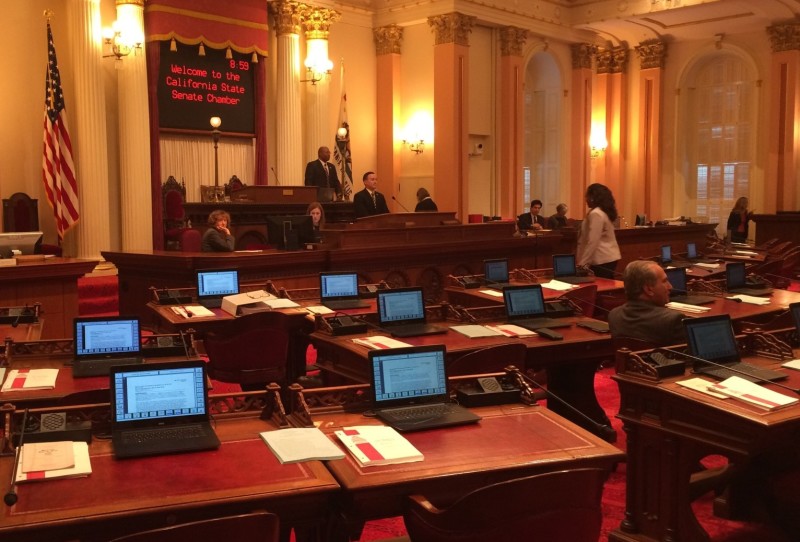The question asked, though, wasn't whether unbacked bills are bad, but why their existence -- part of the way influence can open doors unavailable to those without political muscle -- shouldn't be disclosed. After all, if there are good reasons for having legislative lawyers draft bills for outside groups, then surely there's no reason not to reveal how many of these requests are made, and for whom.
In her April 27 letter denying KQED News' request, Legislative Counsel Diane Boyer-Vine said neither the Legislative Open Records Act nor the California Public Records Act requires disclosure of any records that might exist detailing the requests of lawmakers and their staff to draft legislation, even if the records pertained to prior years.
"Any other responsive records," aside from bills that had been formally introduced and debated, wrote Boyer-Vine and her deputy, Aaron Silva, "will not be produced."
Neither Assembly Speaker Toni Atkins (D-San Diego) nor Senate President Pro Tem Kevin de León (D-Los Angeles) responded to requests to comment or whether they would ask the Legislature's lawyers to disclose the information.
Which leaves individual members of the California Senate and Assembly: Will any of them voluntarily disclose information about how many unbacked bills were sent to the lawyers for drafting, and on whose behalf?
Mostly, the answer is: No.
Below is the result of phone calls and emails made by KQED News to the offices of all 120 legislators, asking for information about unbacked bills. (The list is a work in progress, and will continue to be updated as more legislators respond to the request.)
Some are willing to explain their actions in general terms.
"We do put in requests for legislation at the request of lobbyists or organizations we represent," said Kirk Kimmelshue, chief of staff to Assemblyman Frank Bigelow (R-Madera County). "Typically they are bills that the assemblyman is interested in carrying, but we aren’t sure we can commit to introducing at the time requests need to be made to Legislative Counsel. For that purpose, we put them in unbacked and that way the sponsor can utilize the language with a different author if we are unable to introduce the bill."
That's a common opinion; getting the bill drafted then allows an interest group or its lobbyists to "shop" for an author, someone who will take what would then likely be a sponsored bill.
One chief of staff to a Democratic legislator, who asked not to be identified by name, said all of the lawmaker's bills are submitted "unbacked," and that the lawmaker doesn't officially sign on to anything until the bill language is received.
But of the staff who have confirmed that their legislator boss has submitted unbacked bills to the Legislative Counsel, none will say on whose behalf they did so. And the majority of legislative spokespeople have, so far, responded with a refusal to comment.
"We do not disclose such information," said Ronald Ongtoaboc, communications director for state Sen. Pat Bates (R-Laguna Niguel).
"Our office has attorney-client privilege with matters involving the Office of Legislative Counsel," said Ali Bay, press secretary to state Sen. Mark Leno (D-San Francisco), "and the information you have asked for falls under that privilege."
KQED News producers Guy Marzorati and Lisa Pickoff-White contributed to this report.
[sc:UnbackedBillCode ]
